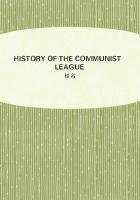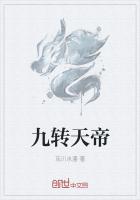Cox's "Mythology of the Aryan Nations," and "Tales of Ancient Greece," the reader will find the entire contents of the Iliad and Odyssey thus minutely illustrated by comparison with the Veda, the Edda, and the Lay of the Nibelungs.
Ancient as the Homeric poems undoubtedly are, they are modern in comparison with the tale of Achilleus and Helena, as here unfolded. The date of the entrance of the Greeks into Europe will perhaps never be determined; but I do not see how any competent scholar can well place it at less than eight hundred or a thousand years before the time of Homer. Between the two epochs the Greek, Latin, Umbrian, and Keltic lauguages had time to acquire distinct individualities. Far earlier, therefore, than the Homeric "juventus mundi" was that "youth of the world," in which the Aryan forefathers, knowing no abstract terms, and possessing no philosophy but fetichi**, deliberately spoke of the Sun, and the Dawn, and the Clouds, as persons or as animals. The Veda, though composed much later than this,--perhaps as late as the Iliad,--nevertheless preserves the record of the mental life of this period. The Vedic poet is still dimly aware that Sarama is the fickle twilight, and the Panis the night-demons who strive to coax her from her allegiance to the day-god. He keeps the scene of action in the sky. But the Homeric Greek had long since forgotten that Helena and Paris were anything more than semi-divine mortals, the daughter of Zeus and the son of the Zeus-descended Priam. The Hindu understood that Dyaus ("the bright one") meant the sky, and Sarama ("the creeping one")the dawn, and spoke significantly when he called the latter the daughter of the former. But the Greek could not know that Zeus was derived from a root div, "to shine," or that Helena belonged to a root sar, "to creep." Phonetic change thus helped him to rise from fetichi** to polytheism. His nature-gods became thoroughly anthropomorphic; and he probably no more remembered that Achilleus originally signified the sun, than we remember that the word God, which we use to denote the most vast of conceptions, originally meant simply the Storm-wind. Indeed, when the fetichistic tendency led the Greek again to personify the powers of nature, he had recourse to new names formed from his own language. Thus, beside Apollo we have Helios; Selene beside Artemis and Persephone; Eos beside Athene; Gaia beside Demeter. As a further consequence of this decomposition and new development of the old Aryan mythology, we find, as might be expected, that the Homeric poems are not always consistent in their use of their mythic materials. Thus, Paris, the night-demon, is--to Max Muller's perplexity--invested with many of the attributes of the bright solar heroes. "Like Perseus, Oidipous, Romulus, and Cyrus, he is doomed to bring ruin on his parents; like them he is exposed in his infancy on the hillside, and rescued by a shepherd." All the solar heroes begin life in this way.
Whether, like Apollo, born of the dark night (Leto), or like Oidipous, of the violet dawn (Iokaste), they are alike destined to bring destruction on their parents, as the night and the dawn are both destroyed by the sun. The exposure of the child in infancy represents the long rays of the morning-sun resting on the hillside. Then Paris forsakes Oinone ("the wine-coloured one"), but meets her again at the gloaming when she lays herself by his side amid the crimson flames of the funeral pyre. Sarpedon also, a solar hero, is made to fight on the side of the Niblungs or Trojans, attended by his friend Glaukos ("the brilliant one"). They command the Lykians, or "children of light"; and with them comes also Memnon, son of the Dawn, from the fiery land of the Aithiopes, the favourite haunt of Zeus and the gods of Olympos.
The Iliad-myth must therefore have been current many ages before the Greeks inhabited Greece, long before there was any Ilion to be conquered. Nevertheless, this does not forbid the supposition that the legend, as we have it, may have been formed by the crystallization of mythical conceptions about a nucleus of genuine tradition. In this view I am upheld by a most sagacious and accurate scholar, Mr. E. A. Freeman, who finds in Carlovingian romance an excellent illustration of the problem before us.
The Charlemagne of romance is a mythical personage. He is supposed to have been a Frenchman, at a time when neither the French nation nor the French language can properly be said to have existed; and he is represented as a doughty crusader, although crusading was not thought of until long after the Karolingian era. The legendary deeds of Charlemagne are not conformed to the ordinary rules of geography and chronology.
He is a myth, and, what is more, he is a solar myth,--an avatar, or at least a representative, of Odin in his solar capacity. If in his case legend were not controlled and rectified by history, he would be for us as unreal as Agamemnon.
History, however, tells us that there was an Emperor Karl, German in race, name, and language, who was one of the two or three greatest men of action that the world has ever seen, and who in the ninth century ruled over all Western Europe. To the historic Karl corresponds in many particulars the mythical Charlemagne. The legend has preserved the fact, which without the information supplied by history we might perhaps set down as a fiction, that there was a time when Germany, Gaul, Italy, and part of Spain formed a single empire. And, as Mr. Freeman has well observed, the mythical crusades of Charlemagne are good evidence that there were crusades, although the real Karl had nothing whatever to do with one.















